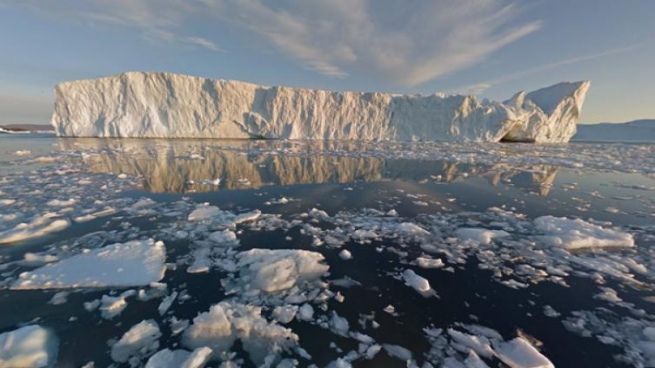The SOS Artic 2022 expedition, which has six crew members aboard a mobile laboratory, will travel an unexplored route in Greenland where they will investigate samples of ice and microorganisms and will test an instrument that “could detect signs of life on Mars” and other planets, explained Lucía Hortal, a member of the crew.
On May 5, four men and two women will embark on an expedition aboard the Polar Wind Sled, a laboratory propelled by a comet of 250 square meters that will travel about 1,500 kilometers from Greenland from west to east, the Scientific Information and News Service (SINC) reported today.
The sled, which weighs more than 2,200 kilos, will depart from a glacier located in Narsarsuaq, where the six members of the expedition will arrive by helicopter.
Among the crew members is Ramón Larramendi, creator of the Wind Sled who has already made ten polar crossingsboth in Antarctica and in the Arctic.
It is the first wind powered vehicle powered by kites that provide efficient energy without emitting pollutants into the atmosphere and also uses solar panels to keep research teams active.
“What was an adventure project, years ago became a zero-emission mobile platform for polar research, made available to the international community to carry it out in a much more sustainable way,” Larramendi said.
In turn, it is estimated that the trip will last between three and four weeks and will be focused on scientific research and dissemination of the effects of climate change in polar environments.
While, Lucía Hortal, an astrobiologist who will participate in the expedition, explained that two experiments will be carried out, one from the Autonomous University of Madrid (UAM) and another from the Madrid Astrobiology Center (CAB).
The first, called “Microirpolar-2 Project” focuses on “the dispersion of microorganisms through the air, how they are distributed geographically and their ability to stay alive,” explained Hortal.
“The experiments are designed to learn what is being transported in a place as pristine and remote as the polar ice caps, and this will help us learn if there is a common community of microorganisms in the air that can reach anywhere on Earth, and how the melting of the poles can modify it,” he continued.
On the other hand, in the second experiment the objective will be to test and fine-tune the Signs Of Life Detector (Solid) instrument, which “could detect signs or traces of life in other parts of the solar system, such as Mars or the icy moons of Jupiter and Saturn (Europe and Enceladus, respectively), which are the main candidates to harbor life”, detailed the researcher.
Finally, the SOS Artic 2022 will be the first polar expedition aligned with four of the Sustainable Development Goals of the United Nations (UN), among which are “quality education”, “affordable and non-polluting energy”, “action for the climate” and “partnerships to achieve goals”.


















